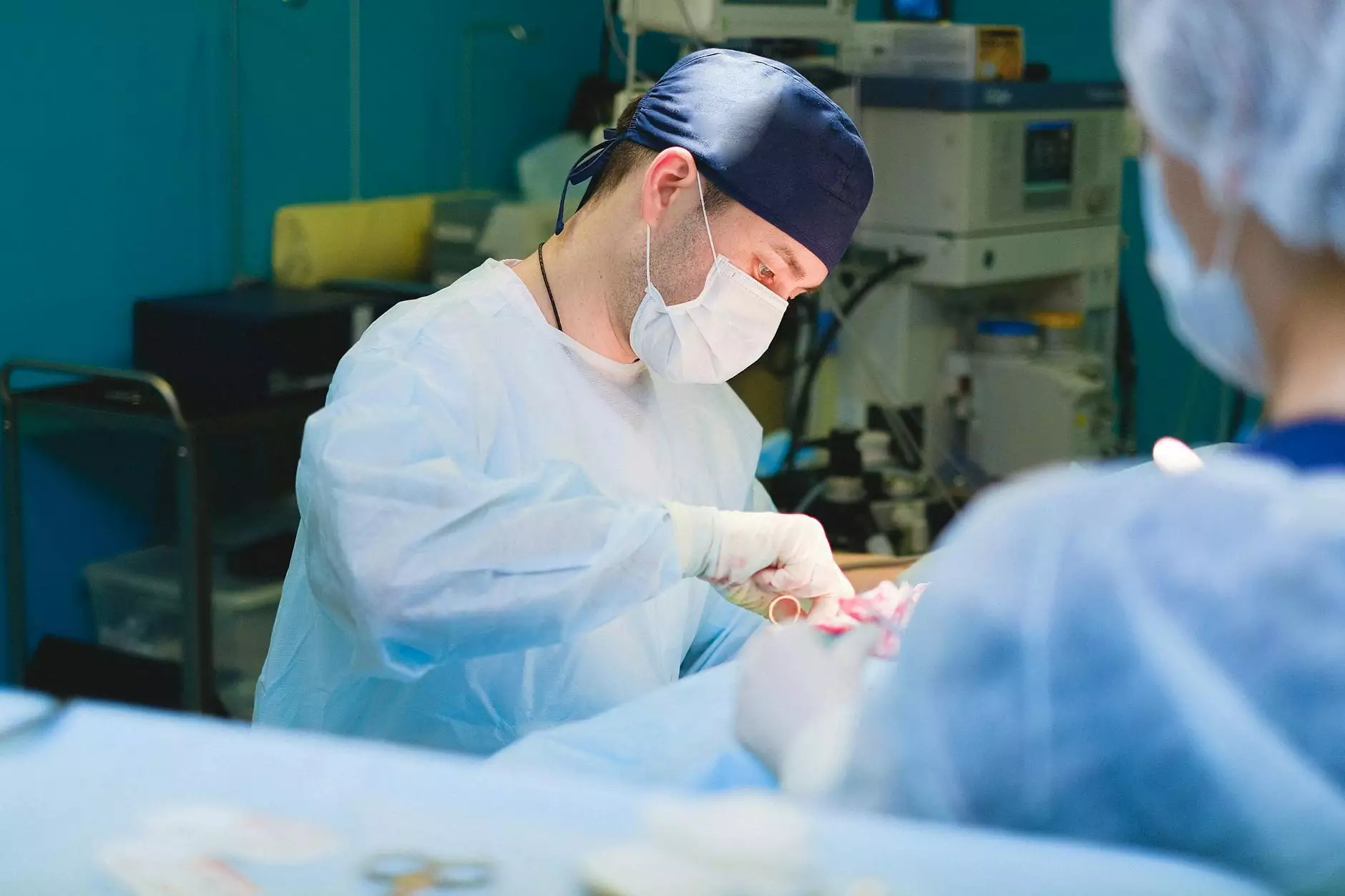Understanding the Costs of Elbow Surgery

Elbow surgery can be a daunting prospect for many individuals suffering from elbow injuries or chronic conditions. An important aspect to consider when contemplating this procedure is how much does elbow surgery cost. This article will provide comprehensive insights into the various factors that influence the costs, the overall process of elbow surgery, and tips for navigating the financial aspect effectively.
What is Elbow Surgery?
Elbow surgery is performed to address an array of issues ranging from acute injuries, such as fractures and ligament damage, to chronic conditions like arthritis and tendinitis. It seeks to relieve pain, restore functionality, and improve the quality of life for patients. Depending on the specific condition and surgical technique employed, the duration, recovery time, and cost can vary significantly.
Factors Influencing the Cost of Elbow Surgery
When determining how much elbow surgery costs, several factors come into play. These can broadly be categorized into the following:
- Type of Surgery: The specific type of procedure—whether it's arthroscopy, open surgery, or decompression—will heavily influence costs.
- Geographic Location: The costs for medical procedures fluctuate widely based on the location of the hospital or surgical center. Urban centers may charge more compared to rural establishments.
- Surgeon's Expertise: Highly experienced and reputable surgeons may command higher fees due to their skill and track record.
- Facility Fees: The charges for using a hospital or surgical facility, including operating room costs and recovery units.
- Anesthesia: Fees related to the anesthesiologist and the type of anesthesia used during the procedure.
- Post-Surgery Care: Follow-up visits, physical therapy sessions, and necessary post-operative treatments can accumulate additional costs.
- Insurance Coverage: The patient's health insurance plan will significantly affect out-of-pocket expenses. It's essential to understand what your insurance covers.
Types of Elbow Surgeries and Their Estimated Costs
To offer a clearer perspective, let’s delve into some common types of elbow surgeries and their estimated costs:
1. Arthroscopic Surgery
Arthroscopy is a minimally invasive technique that allows surgeons to view and, if necessary, treat joint issues through small incisions. This technique often results in quicker recovery times.
- Estimated Cost: $5,000 to $15,000
2. Open Elbow Surgery
Open surgery may be necessary for extensive repairs and revisions. This method takes longer for recovery but is often required for severe injuries.
- Estimated Cost: $10,000 to $20,000
3. Elbow Replacement Surgery
In cases of severe arthritis, doctors may recommend elbow joint replacement surgery to relieve pain and improve functionality.
- Estimated Cost: $20,000 to $50,000
Understanding Insurance Coverage
Before undergoing elbow surgery, it is critical to consult with your insurance provider. Factors affecting coverage include:
- Plan Type: HMO, PPO, and EPO plans can have varied approaches to covering surgeries.
- Pre-authorization Requirements: Many plans require pre-approval for surgical procedures.
- Co-pays and Deductibles: Ensure clarity on your financial responsibility before the procedure.
Financial Assistance and Payment Options
For patients facing high out-of-pocket costs associated with elbow surgery, there are several financial assistance options available:
- Payment Plans: Many hospitals and surgical centers offer flexible payment options. It’s advisable to inquire upfront.
- Medical Credit Cards: Consider applying for medical credit cards that provide an interest-free grace period.
- Charity Programs: Some health organizations offer aid for low-income patients who require surgery.
Preparing for Elbow Surgery
Once you've grasped the costs and preliminary concerns regarding insurance and payment, it’s important to be adequately prepared for the surgery itself:
Pre-operative Consultation
During the initial consultation, it is vital to gather as much information as possible about the procedure, expected recovery time, and potential risks. Prepare a list of questions to ensure clarity.
Physical Preparation
Good physical condition enhances the success of the surgery. Engage in pre-operative exercises, eat a balanced diet, and avoid activities that may exacerbate your condition.
Post-operative Support
Arranging for post-operative help is crucial. Consider enlisting family or friends for assistance during your recovery phase, particularly in the initial days post-surgery.
What to Expect After Elbow Surgery
Understanding what comes after surgery is just as important as knowing its costs and preparations:
Recovery Timeline
The recovery from elbow surgery may vary significantly based on the surgery type and the individual. Generally, patients can expect:
- Initial Rest: Most will need to rest completely for a few days.
- Physical Therapy: Engaging in physical therapy sessions, usually starting within a couple of weeks after surgery, is critical for recovery.
- Return to Activities: Depending on the procedure, light activities can typically resume within 4 to 6 weeks, while full activity can take up to several months.
Managing Pain and Post-operative Care
Following surgery, it is normal to experience discomfort. Managing pain through prescribed medications, following postoperative care instructions, and attending follow-up appointments are all crucial steps towards a smooth recovery.
Final Thoughts
Determining how much elbow surgery costs involves understanding various factors such as surgery type, geographic location, and facility fees, as well as navigating through insurance coverage options. Taking necessary steps to prepare for the procedure significantly influences the overall success and recovery experience.
With increasing knowledge about elbow surgery, associated costs, and the recovery process, patients can approach their surgical journey with confidence. For those seeking expert medical care, consider visiting elclinics.com to learn more about your options and to consult with qualified health professionals.









